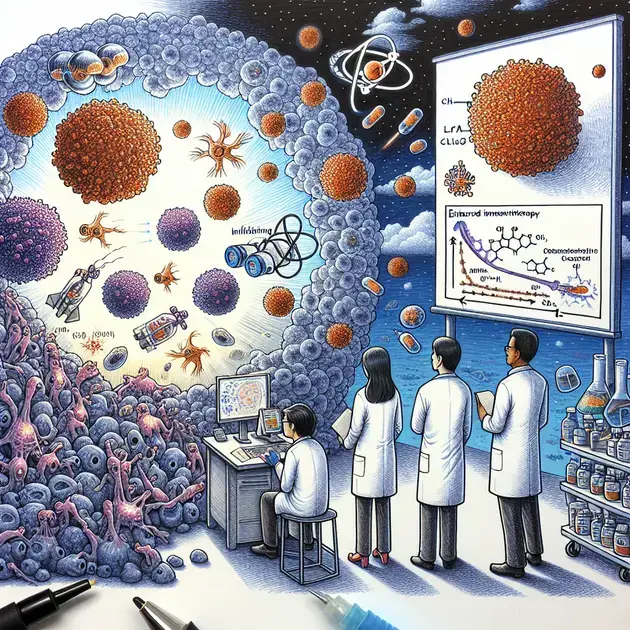Title: Immune Checkpoint Blockades: A Revolutionary Treatment for Advanced Cancers
Introduction:
Immune checkpoint blockades (ICBs) have emerged as a groundbreaking approach in the treatment of various advanced cancers. Their ability to activate the body’s immune response and enhance the killing of tumor cells has significantly transformed clinical practices. However, despite their initial success, the effectiveness of ICBs has reached a plateau. This can be attributed to the development of therapeutic resistance, which undermines the capability of tumor-infiltrating lymphocytes (TILs) to combat cancer cells. Consequently, the search for strategies to overcome this resistance and reinvigorate anti-cancer TILs has become a vital pursuit for cancer clinicians worldwide.
ICBs and Therapeutic Resistance:
ICBs work by targeting immune checkpoints, molecules that regulate immune responses to maintain self-tolerance and prevent excessive immune activation. By blocking these checkpoints, ICBs unleash the immune system’s full potential, particularly the cytotoxic TILs that play a pivotal role in eliminating cancer cells. However, resistance to ICB therapies can emerge through several mechanisms.
One primary mechanism of resistance involves the upregulation of alternative immune checkpoints. When one checkpoint is blocked, cancer cells may activate compensatory pathways, rendering the therapy less effective. Additionally, tumor microenvironment factors, such as the release of immunosuppressive cytokines or the presence of inhibitory immune cells, can further impede the anti-tumor activity of TILs.
Rejuvenating Anti-Cancer TILs:
To improve the efficacy of ICB therapies, researchers are actively exploring strategies to disarm therapeutic resistance and rejuvenate anti-cancer TILs. One approach involves combining ICBs with other treatment modalities, such as targeted therapies or radiation therapy. These complementary approaches aim to counteract resistance mechanisms and enhance the immunogenicity of tumors, making them more susceptible to TIL-mediated cell killing.
Another promising avenue of research focuses on identifying biomarkers that can predict a patient’s response to ICB therapy. By utilizing biomarkers, clinicians can better tailor treatment plans and select patients who would benefit the most from ICBs. Moreover, the identification of new targets and the development of novel checkpoint inhibitors are also being pursued to provide alternative strategies for reinvigorating TILs and overcoming resistance.
Conclusion:
The advent of immune checkpoint blockades has revolutionized cancer treatment, offering new hope to patients with advanced cancers. However, the emergence of therapeutic resistance presents a significant challenge that needs to be overcome. By exploring novel combination therapies, identifying predictive biomarkers, and developing innovative checkpoint inhibitors, researchers and clinicians endeavor to rejuvenate anti-cancer TILs and restore the efficacy of ICB treatments. These efforts hold the potential to further improve patient outcomes and drive advancements in the field of cancer immunotherapy.
